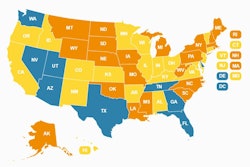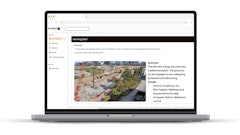The $1.5 trillion infrastructure plan President Donald Trump called for in his State of the Union address counts on state and local governments working with private investors to come up with much of the cash.
Exactly how that would work remains unclear, and state transportation officials noted that Trump's proposal could put more pressure on them to raise taxes, fees and tolls just to qualify for a share of the federal infrastructure program.
“The Trump administration has issued a charge that sounds a lot like `show me the money,’” said Missouri Department of Transportation Director Patrick McKenna, who is president of the Mid America Association of State Transportation Officials.
As for how to reach $1.5 trillion for infrastructure, Trump said only that “every federal dollar should be leveraged by partnering with state and local governments and, where appropriate, tapping into private-sector investment.”
Which is how the system currently works.
The federal government typically provides 80% of the funding for capital expenditures on highways, with state and local governments coming up with the rest. On transit projects, the federal share typically ranges from 50% to 80%.
A summary of Trump's plan – widely but unofficially distributed before his speech – suggests he envisions a significant shift of financial responsibility.
Half of his proposed federal money would go toward competitive grants for a wide range of infrastructure, including various transportation modes, hydropower, and drinking and wastewater facilities. But the grants would cover no more than 20% of project costs while requiring applicants to commit to “new, non-federal revenue.”
Over the past five years, about three-fourths of the states have taken steps to boost transportation funding, including 26 states that have raised motor fuel taxes. Many states, such as Missouri and Arkansas, are already courting deficit spending to satisfy their match of federal transportation projects.
(more on state concerns over federal retreat from infrastructure investment . . . )



















